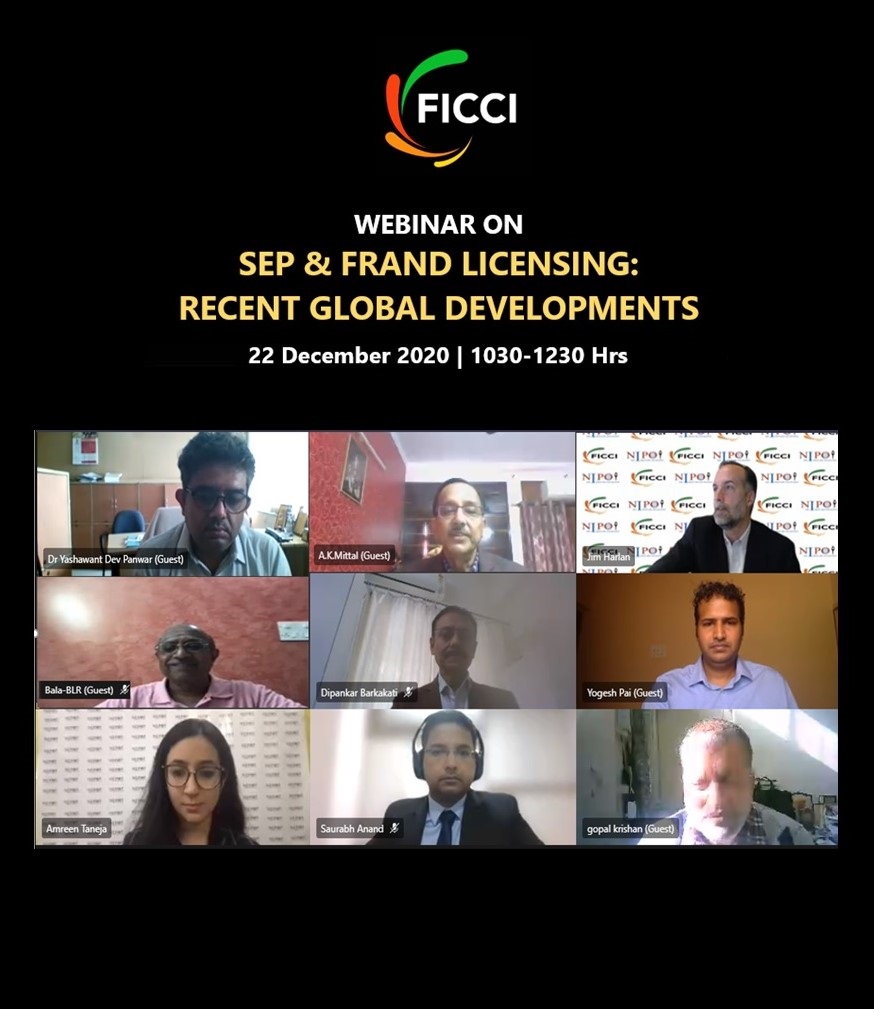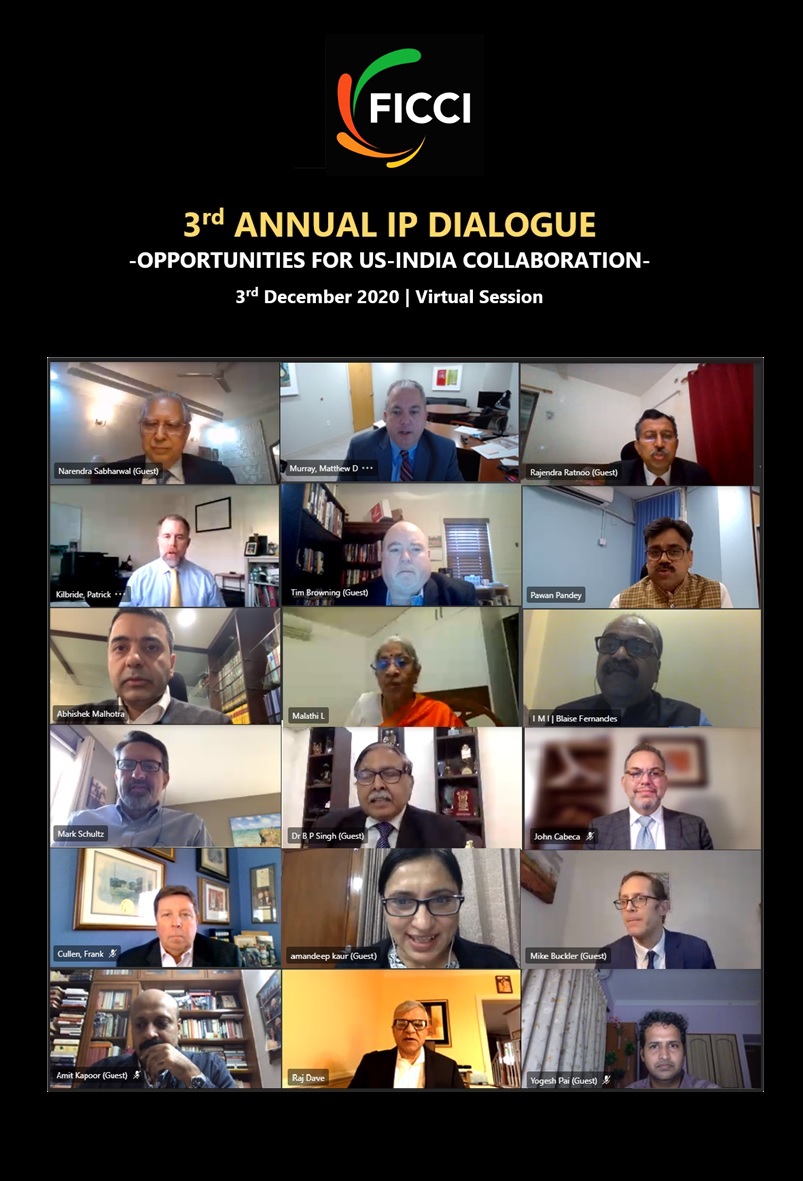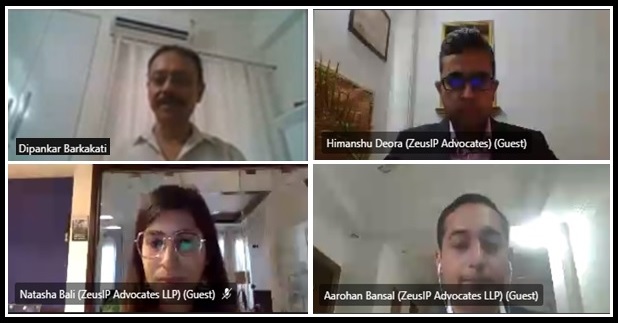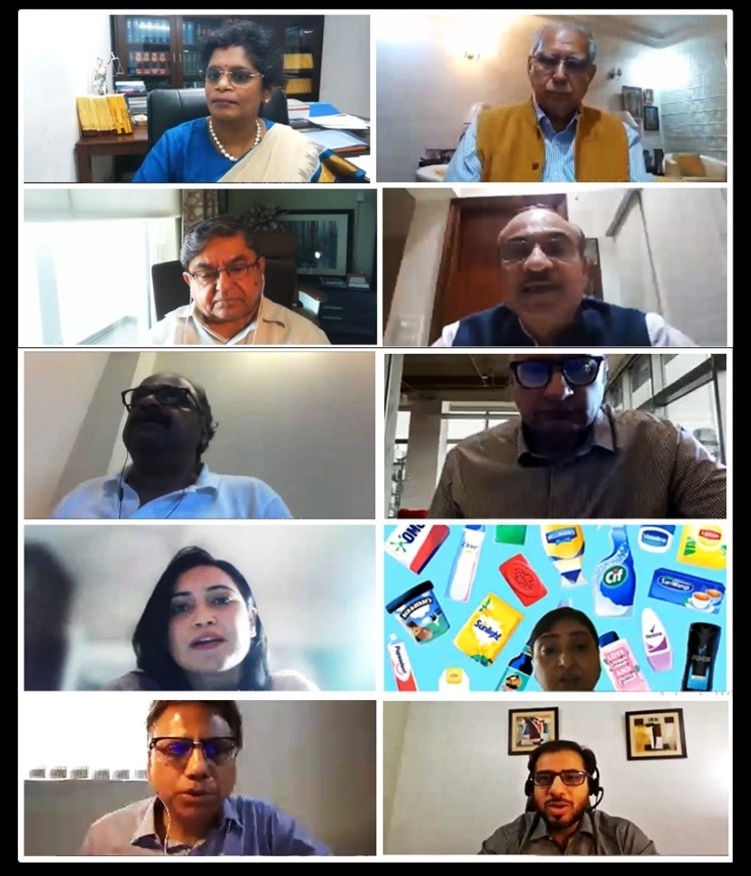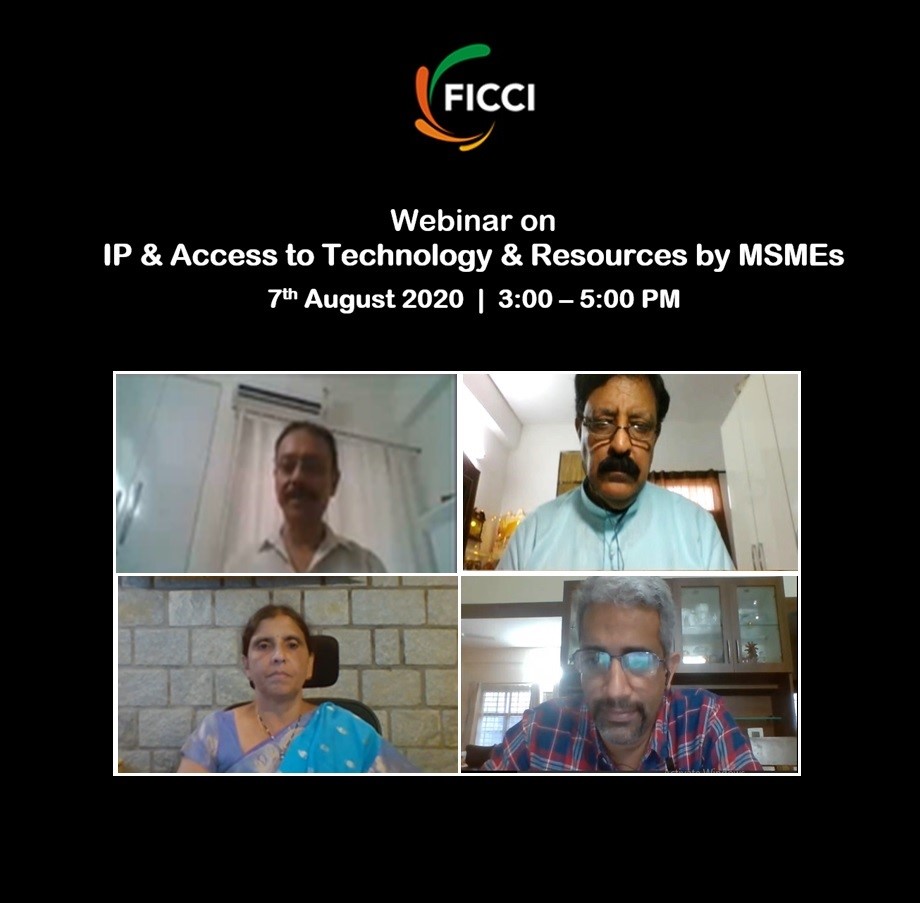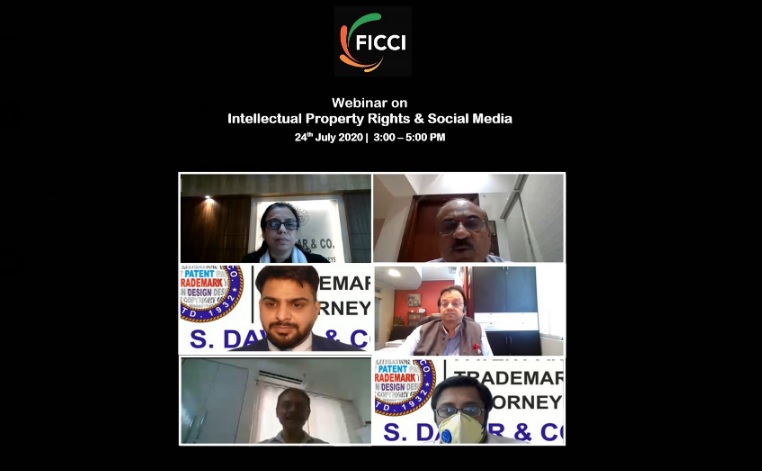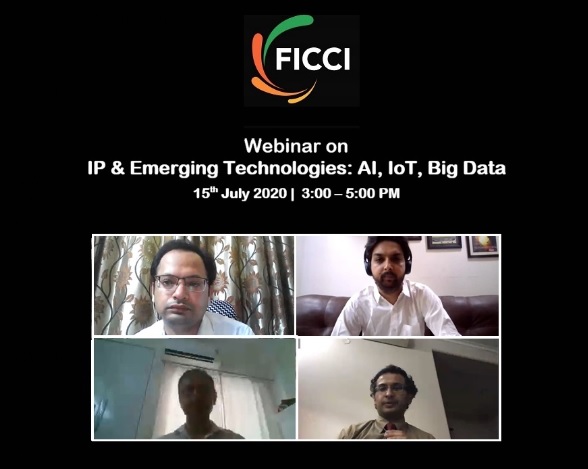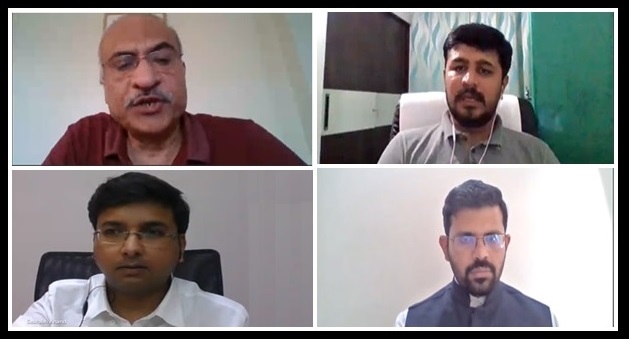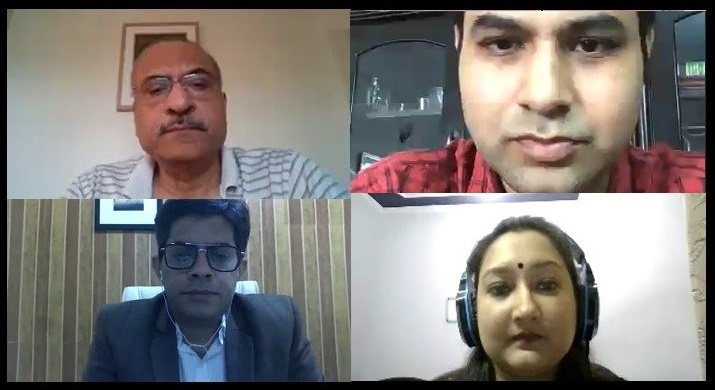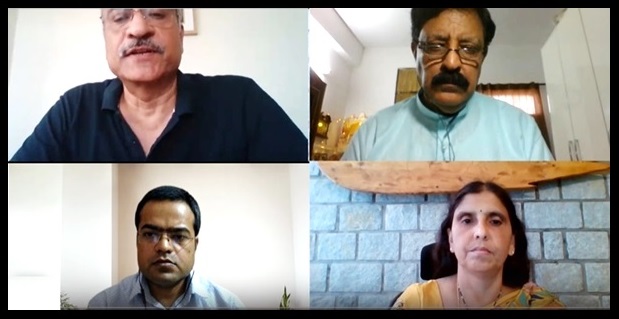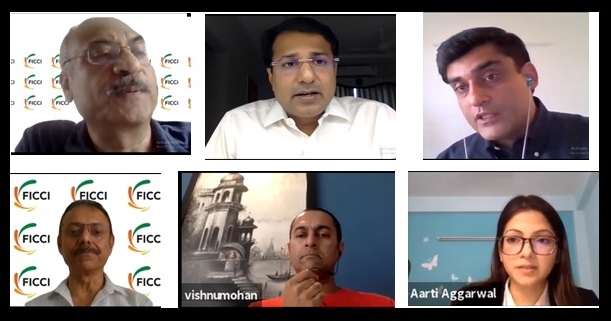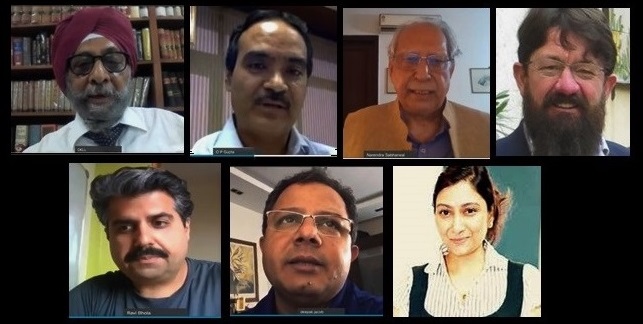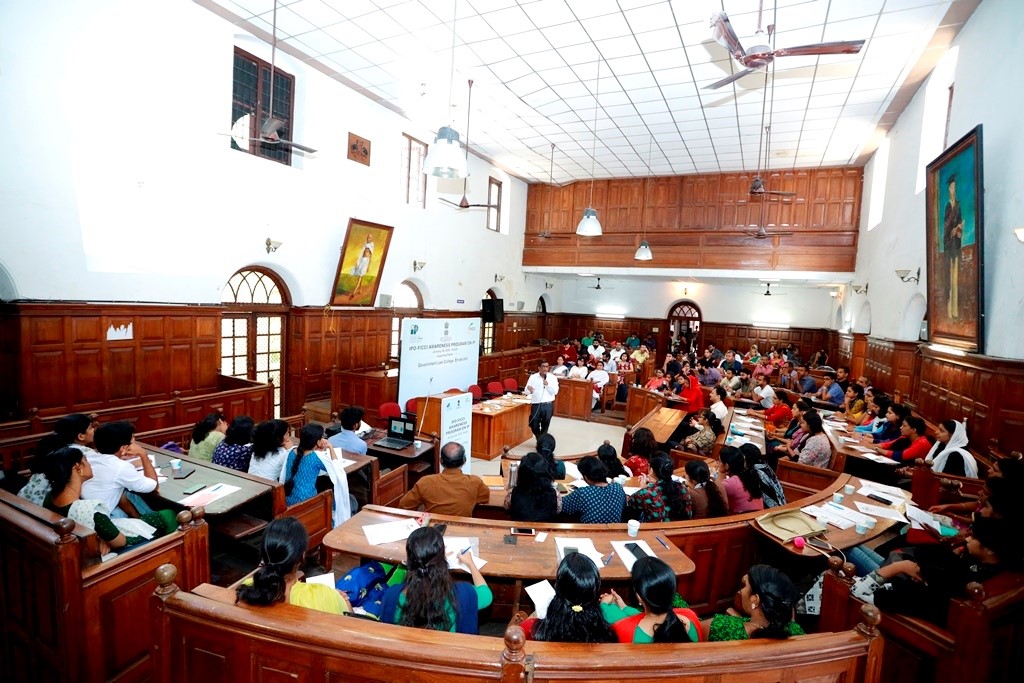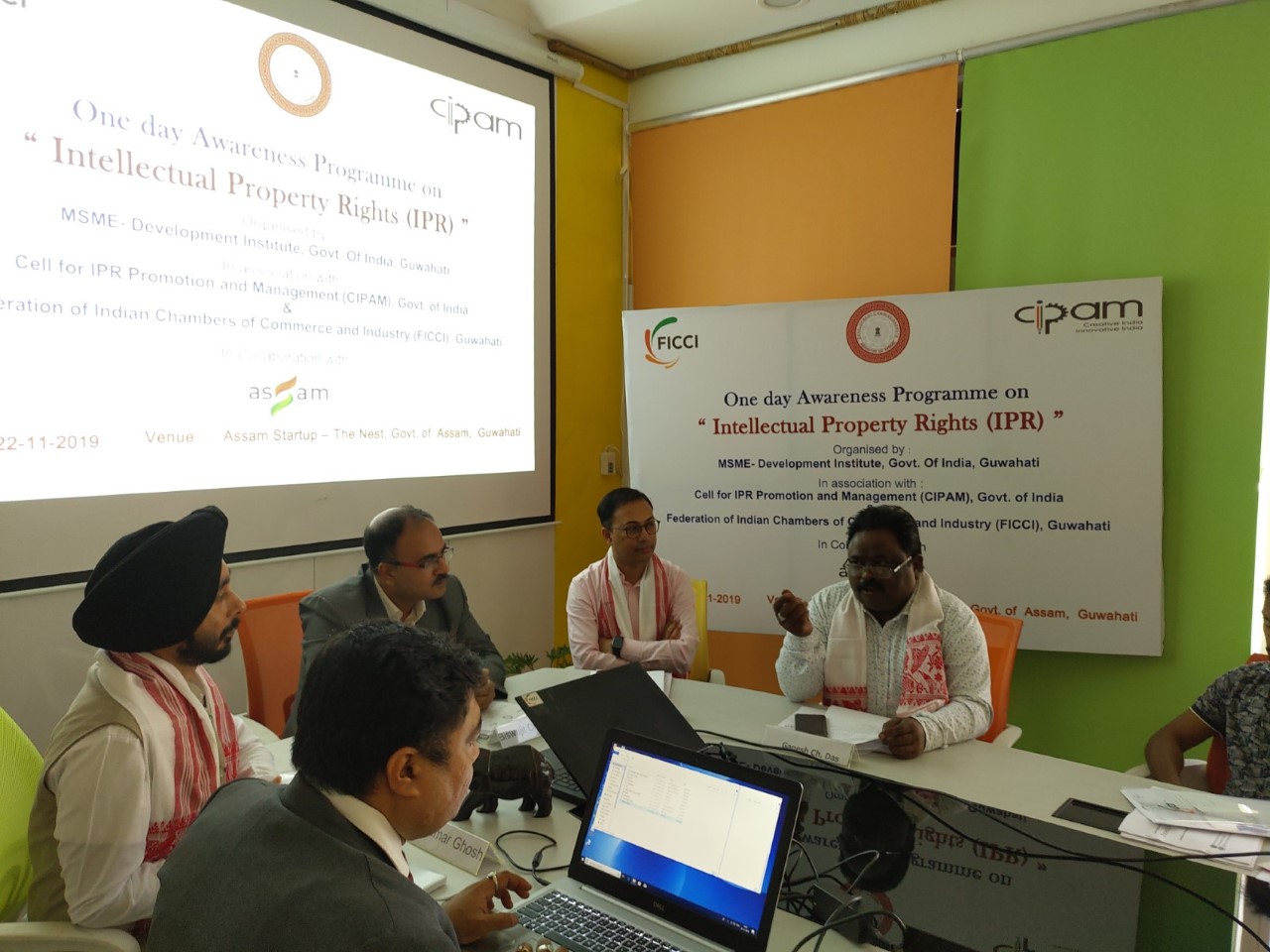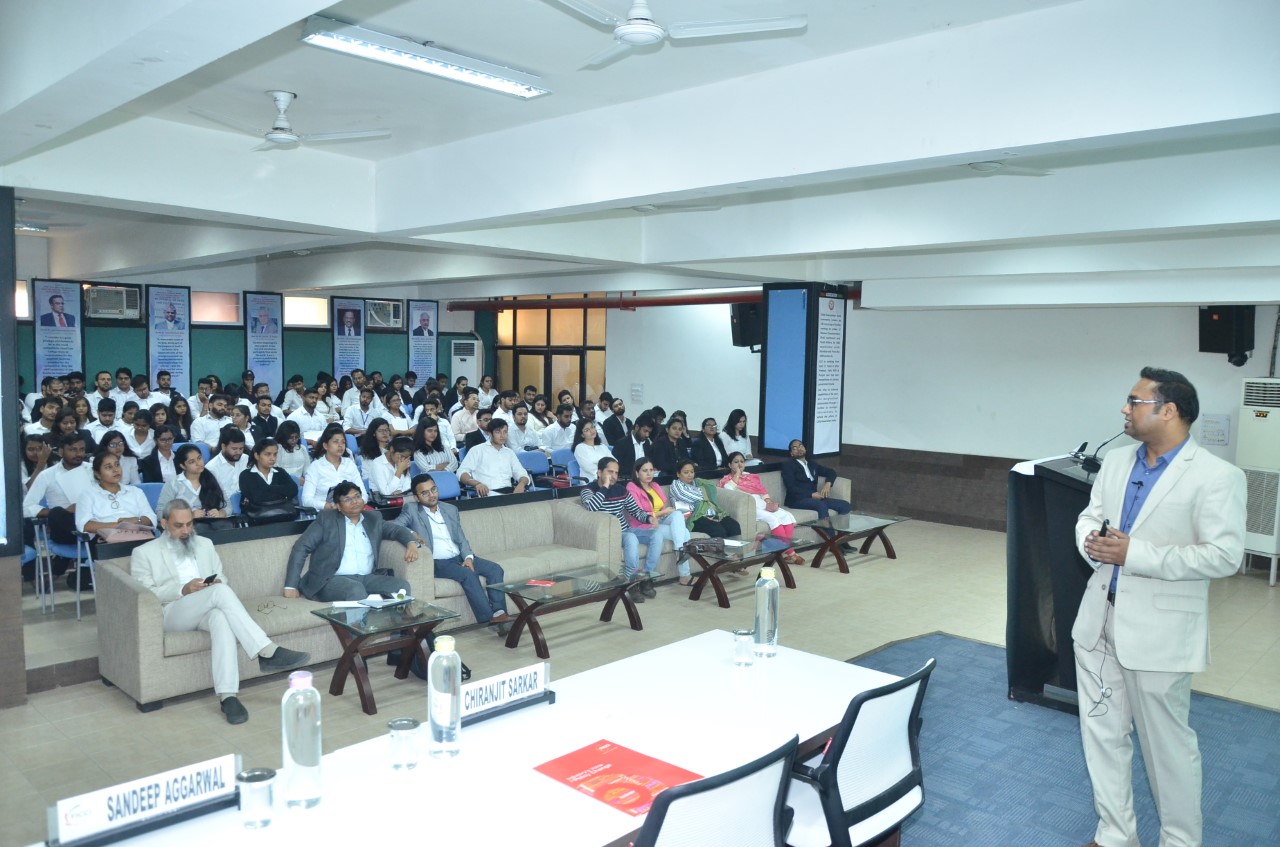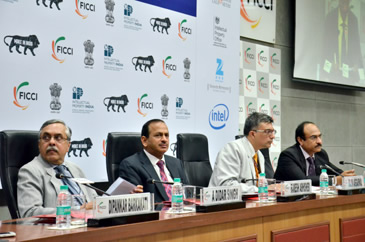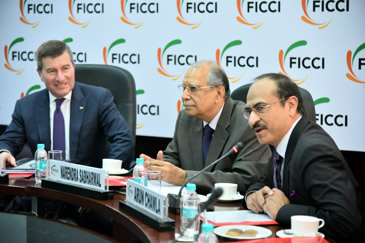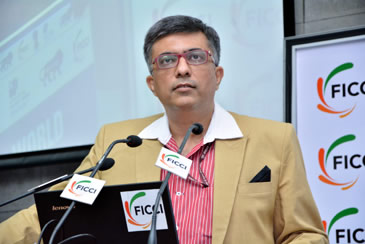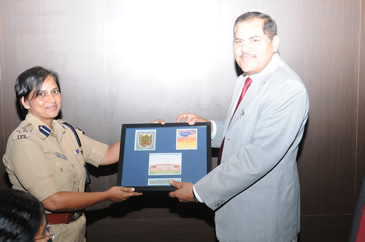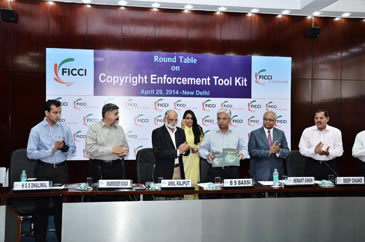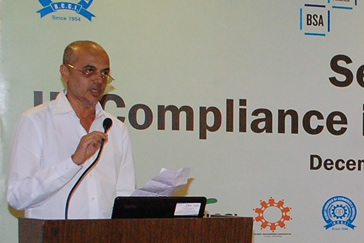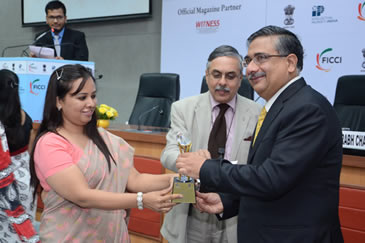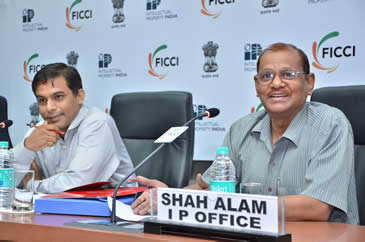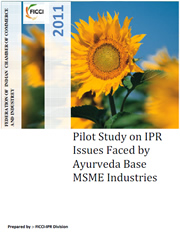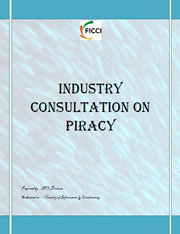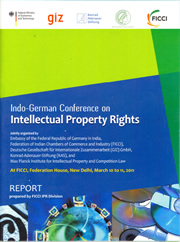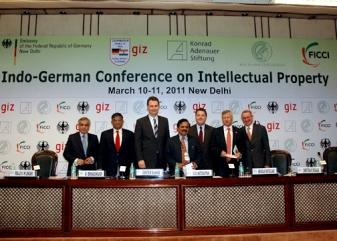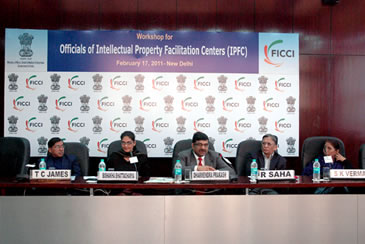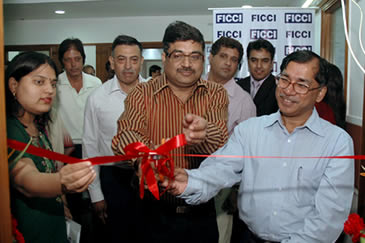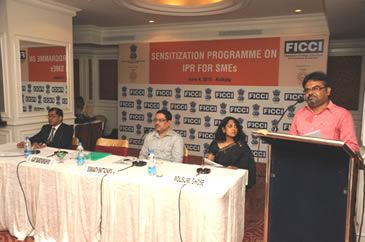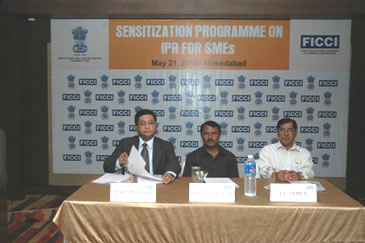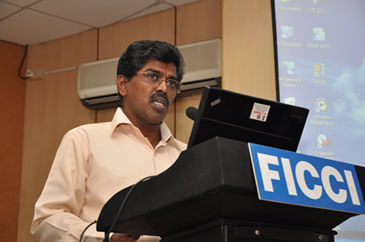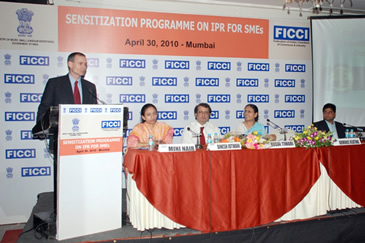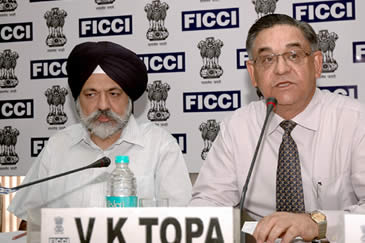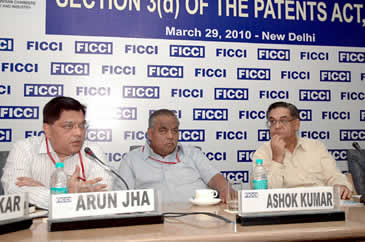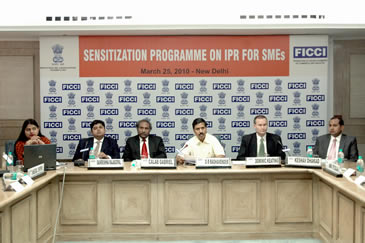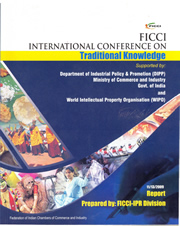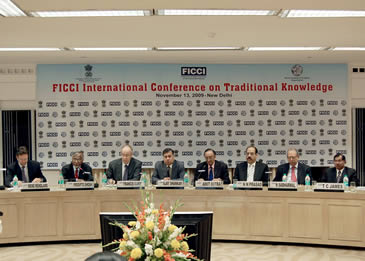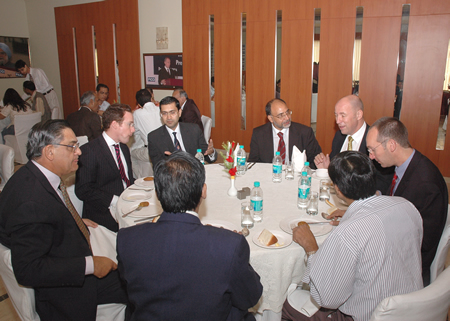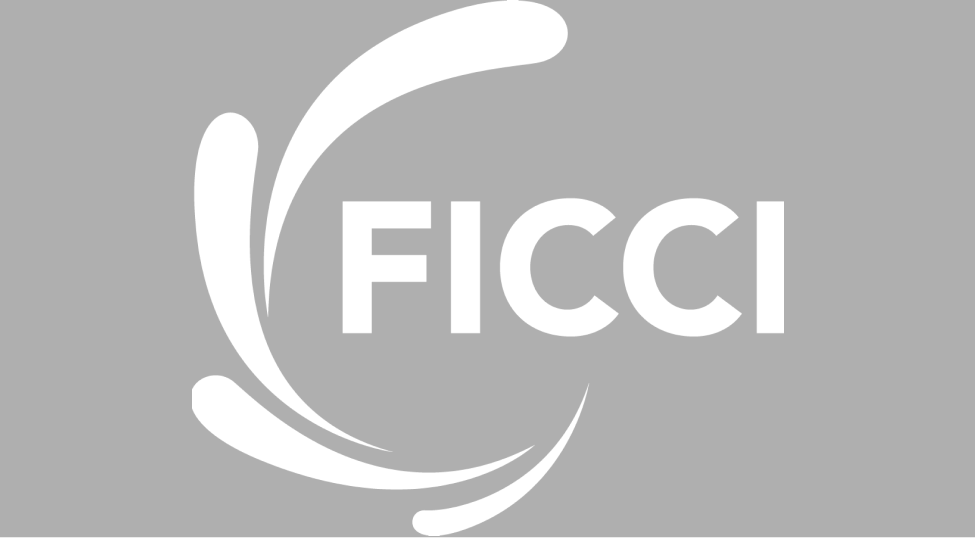The Intellectual Property Rights (IPR) Division at FICCI is intensively involved with issues pertaining to protection and enforcement of Intellectual Property Rights. It has taken decisive steps in raising the levels of awareness about Intellectual Property Rights amongst the citizens of India. In this regard, FICCI’s constructive contributions span various capacity building exercises and training programs for the industry, the judiciary, and the law enforcement agencies.
Team Leader
Dipankar Barkakati
ConsultantTeam Leader
Leena Jaisani
Assistant Secretary GeneralTimeline
Four-fold increase in the number of patents filed by women in India: Himani Pande, Joint Secretary, DPIIT
World IP Day 2023

WIPO-FICCI-ICA webinar on Managing and Resolving IP & Commercial Disputes through Arbitration & Mediation
IPR is an emerging area and research with their results have wider scope in terms of its impact on citizens: Som Parkash, MoS for Commerce and Industry
Intellectual Property Talent Search Examination: 5th edition of IP OLYMPIAD 2022
Significant increase in filing of IP applications a positive step: Secretary, DPIIT
Stakeholder Suggestions on Delhi High Court Intellectual Property Division Rules 2021
Value of Valuation! Estimating your Patent's Worth
Govt taking measures to enable MSMEs protect IP Rights, monetize creative innovations: Joint Secretary, DPIIT
FICCI Submission on Proposed Copyright Act Amendment
FICCI-US Chamber organise 3rd edition of India-US IP Dialogue
Need to curb Counterfeiting & Piracy to ensure the relevance of Intellectual Property: Justice Prathiba M. Singh
FICCI Submission on Decriminalization of Offenses Under Copyright Act 1957
FICCI Submission on Standard Essential Patents related Issues in India
FICCI-IMI-IFPI organise seminar on Digital Piracy
FICCI Submission on the Draft Patent (Amendment) Rules, 2018
FICCI Submission on the Draft Patent (Amendment) Rules, 2019
FICCI Submission on the Draft Copyright (Amendment) Rules, 2019
India-US dialogue key to pragmatic solutions on intellectual property issues - FICCI IPR Committee Chair
Intellectual Property to help secure economic value of sports activities in India - Justice Pratibha M. Singh
Conference on IPR for Global Business in Bangalore on February 22
FICCI-IPO Awareness Program on Intellectual Property Rights
International governance approach required to address issues arising from data generation globally: DG, WIPO
An Interaction with WIPO Director General Francis Gurry on the theme Intellectual Property and the Fourth Industrial Revolution: Challenges and Opportunities
FICCI and US Chamber Jointly Launch First-Ever India-U.S. Dialogue on Intellectual Property
FICCI welcomes India's Accession to WIPO 'Internet' Treaties
FICCI's Submission on the DIPP's Discussion Paper on Standard Essential Patents and their Availability on FRAND Terms - Additional Points
Capacity building & enforcement of IP laws a priority: DIPP Secretary
FICCI World IP Day 2018: Promoting Innovation, Creativity and IP Generation among Women
FICCI-IPO Joint IP Awareness Programme
FICCI Conference on Copyright and the Creative Economy
Government is taking steps to reduce the patent application examination time to 18 months
FICCI-INTA Workshop: Building a Best Practices Guide on Counterfeit Detection Mobile Apps
Launch of FICCI-DIPP IPR Enforcement Toolkit for Police
FICCI-ICC International Conference on IP: Key Enabler to Growth & Innovation
DIPP FICCI Joint Workshop on Protection of Trade Secrets
IPR Policy Roundtable on Strengthening Copyright Industries
FICCI-EUIPO-GOVT. OF INDIA SEMINAR: Specialized training on Trademarks & IP Tools for the IP Lawyers & Professionals
FICCI-EUIPO-GOVT. OF INDIA SEMINAR: Specialized training on Trademarks & IP Tools for the IP Lawyers & Professionals
FICCI-EUIPO-GOVT. OF INDIA SEMINAR: Specialized training on Trademarks & IP Tools for the IP Lawyers & Professionals
Webinar on IPR Policy of India, hosted by: FICCI in association with K&L Gates
Capacity Building Program on IPR for Delhi Police Officers
Roundtable on Effective Implementation of National IPR Policy
FICCI's Submission on the DIPP's Discussion Paper on Standard Essential Patents and their Availability on FRAND Terms
FICCI – EUIPO – GOVT. OF INDIA SEMINAR: Specialized training on Trademarks and industrial Designs for the IP Lawyers & Professionals
FICCI Welcomes New IPR Policy
DIPP appointing new examiners to speed up examining of patents, designs and trademarks applications: DIPP Secy.
UK Police cracking down on online piracy; Holds lessons for India in tackling the menace
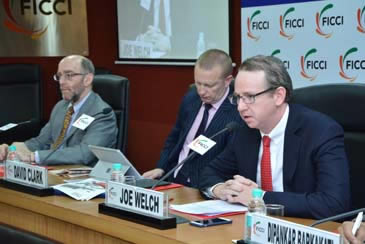
FICCI Conference on Digital Advertising: Protecting Brand Integrity & Stimulating Content Creation
FICCI Submission on USTR Special 301 Review 2016
FICCI's Suggestions on Draft Patents (Amendment) Rules, 2015
FICCI's Recommendations on Draft Trademark Rules, 2015
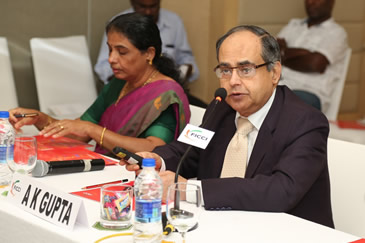
European Union-FICCI-DIPP Seminar on Registration, Promotion & Marketing of Geographical Indications
FICCI-EPO-EBTC Workshops on 'The European Patent System and EPO Examination Practice in the field of Pharmaceuticals and Biotechnology & Commercialisation of IP'
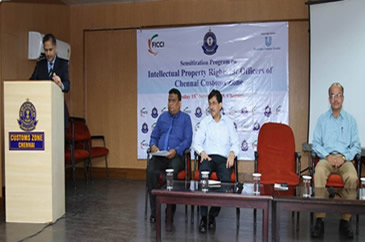
Sensitisation Program on Intellectual Property Rights for Officers of Chennai Customs Zone
Minister felicitates Mircomax for acquiring 1.25th Million International Trademark
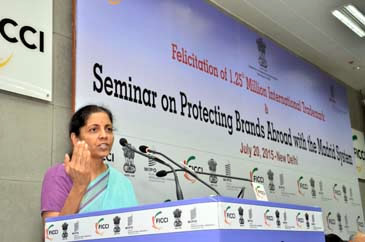
Felicitation of 1.25th Million International Trademark & Seminar on Protecting Brands Abroad with the Madrid System
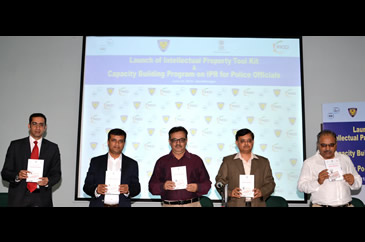
Launch of Intellectual Property Tool Kit & Capacity Building program on IPR for Police Officials
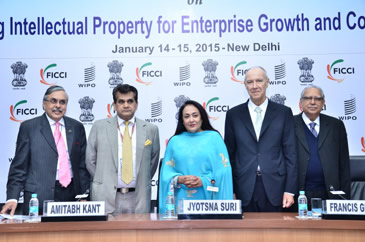
WIPO-DIPP-FICCI International Forum on 'Leveraging IP for Enterprise Growth & Competitiveness'
Capacity Building Program on IPR for Customs Officials
Seminar on Gathering Technical and Commercial Information from EPO's patent information products & Commercialisation of IP
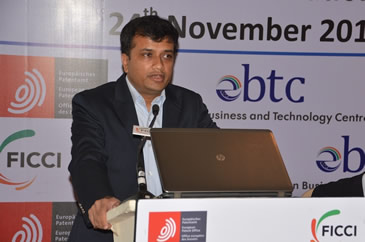
Seminar on Gathering Technical and Commercial Information from EPO's patent information products & Commercialisation of IP
WIPO-IPO-FICCI Roving Seminar on the Patent Cooperation Treaty (PCT)
FICCI Suggestions on Proposed IPR Policy
Intellectual Property Awareness Program 2014-15: State level IP Awareness program
One Day Workshop on Protecting Pharma & Biotech inventions in Europe
Intellectual Property Awareness Program 2014-15: State level IP Awareness program
'Indian IP law is TRIPS Compliant and more. Indian copyright law is one of the strongest and best in the world'USTR Annual 2014 Special 301 Report
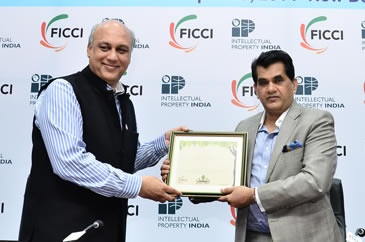
Conference on Fostering Innovations and Creativity in Indian Industry through Intellectual Property for Higher Growth Trajectory
FICCI's rebuttal to arguments made during the USTR's public hearing on 24 February 2014 on designating India as "Priority Foreign Country" in the USTR's 2014 Special 301 report
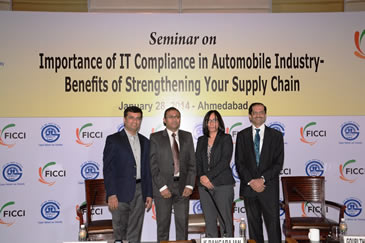
Seminar on Importance of IT Compliance in Automobile Industry -Benefits of Strengthening Supply Chain
Cluster Level IP Awareness Programme for Machine Tool Cluster
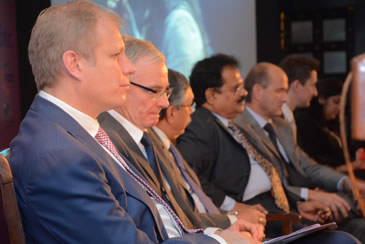
Indo-European Conference on the Role of the Patent System in Fostering Innovation and Technology Transfer
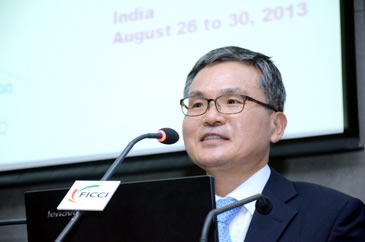
FICCI-WIPO-IPO Public Awareness Building Programme on the Madrid System for the International Registration of Marks
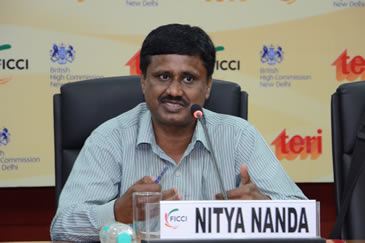
Regional seminar on 'Indian Intellectual Property Rights Regime, Changing Trends, Issues'
Indian Intellectual Property Rights Regime, Changing Trends, Issues
Sensitization Programme on IPR in Software for MSMEs
WIPO-FICCI-NBAI: Conference on IPR
Management Development Programme on "IP Management for Business advantage"
IP Protect Expo
Japan Intellectual Property Association (JIPA) Delegation to India
FICCI Suggestions on Draft National Competition Policy
Ministry of Information & Broadcasting Issued Notices to Combat piracy of Films & Music
FICCI's Suggestions on Proposed National Intellectual Property Policy
Industry Consultation on "MIB's Task Force Recommendations on Piracy"
FICCI Suggestions on Discussion Paper on Utility model Proposed by Department of Industrial Policy and Promotion (DIPP)
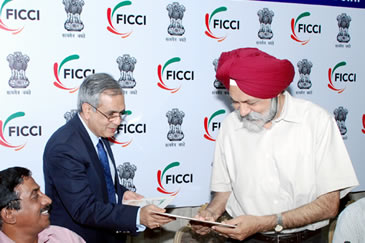
One Day National Consultation on Traditional Knowledge and Traditional Cultural Expressions
FICCI’s Position on Section 3(D) of the Patents Act, 1970
FICCI's Position on Compulsory Licensing
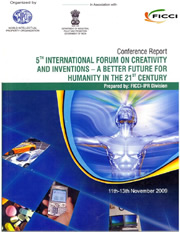
Conference Report on "5th International Forum on Creativity and Inventions - A Better Future for Humanity in the 21st Century"
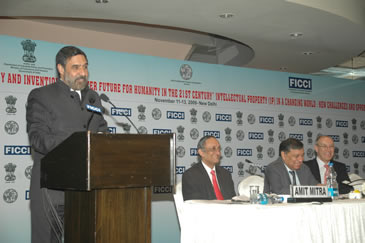
WIPO International Forum on the "Creativity Inventions - A Better Future for Humanity in the 21st Century"
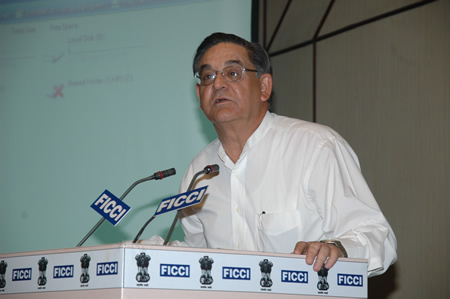
National IP Seminar on "IPR and Innovation: A Way Forward for SME's" on the occasion of World IP Day
Intellectual Property Rights Sensitization Programme
Intellectual Property Rights Sensitization Programme
Intellectual Property Rights Sensitization Programme
Intellectual Property Rights Sensitization Programme
Intellectual Property Rights (IPRs) Sensitization Programme
Intellectual Property Rights (IPRs) Sensitization Programme
Intellectual Property Rights Sensitization Programme
WIPO Inter-Regional Forum on The Role of Intellectual Property In The Innovative Economy
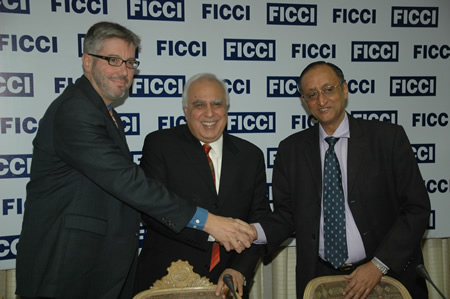
Seminar on Public Funded R&D (Protection, Utilization and Regulation of Intellecttual Property) Bill, 2007
Conference on Development and Intellectual Property (IP)
World IP Day Seminar



